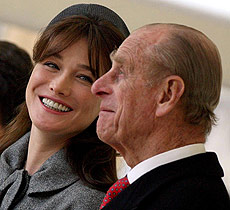 The New York Times ran a piece yesterday on a new exhibit on Berlin dedicated to the Third Reich.
The New York Times ran a piece yesterday on a new exhibit on Berlin dedicated to the Third Reich.
This passage in particular caught my eye:
BERLIN — As artifacts go, they are mere trinkets — an old purse, playing cards, a lantern. Even the display that caused the crowds to stop and stare is a simple embroidered tapestry, stitched by village women. But the exhibits that opened Friday at the German Historical Museum are intentionally prosaic: they emphasize the everyday way that ordinary Germans once accepted, and often celebrated, Hitler. The household items had Nazi logos and colors. The tapestry, a tribute to the union of church, state and party, was woven by a church congregation at the behest of their priest.
And yet the pope, a “subtle historian”, people tell me, is a man, who despite education, heritage and, quite possibly, the experiences of his youth, who chooses to claim that the Nazis were atheists. Odd that.
And it’s not just the pope. Here we have Chris Patten, a less than positive presence in British public life and the individual given the task of extricating the recent papal visit from the chaos to which the church’s incompetence had reduced it, writing in the latest European Voice:
Many secularists argue that ever since the Enlightenment, reason has been enough to guide governance and policymaking, buttressed by the rule of law if a community is lucky. But Benedict asserted the importance of faith alongside reason and law in safeguarding our civilisation. Europe’s foundations lie not just in Aristotle, reason, and classical Greece, and not just in Rome with its understanding of the importance of the law, but also in Jerusalem and the Abrahamic faith groups – Christian, Jewish, and Muslim. Reason devoid of ethics can prove insufficient to support the survival of civilisation, a point that the pope’s own homeland, Germany, discovered in the 1930s.
“Reason devoid of ethics” has to be one of the more boneheaded descriptions I have yet read of Nazi ideology, a mish-mash of beliefs that were, at their core, not only profoundly irrationalist but also explicitly and perversely “moral”. That morality may have been grotesque, but that doesn’t change the fact that it was quite deliberately intended to supplement and, where necessary, supplant the exercise of reason.
The whole Patten piece is instructive reading, both for its exaggerated sense of the importance of the papal visit (in the end, a modest success that confounded some of its more dunderheaded critics, but which is likely to prove of little lasting significance) and for the usual hymn to Thomas More, a man who certainly stood up with some courage for what he believed to be right, but also an apparatchik with relatively few qualms about using state power to crush the freedom of conscience of others. More should be judged by the standards of his time, not ours, but it is still possible to discern within this tough, convinced and clever thinker the first glimpses of the Bolshevik nightmare to come. I’ll pick someone else to mourn, thank you.

 CONSVLTVS of
CONSVLTVS of 



